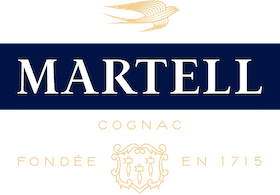Toward a more sustainable future
Cognac’s bold environmental commitment
Martell, the oldest of the great cognac houses, has a long history of demonstrating its commitment to the environment.
From the vine to the glass, through regenerative viticulture practices, low-carbon distillation and more, Martell’s initiatives to produce a more sustainable cognac are benefitting not only the local environment and communities, but this generation and the next.
More sustainable viticulture
When it comes to sustainable viticulture, the last 10 years have seen Maison Martell move towards newer, more sustainable cultivation practices.
The 450 hectares of Domaines Jean Martell received the Cognac Environmental Certification (CEC) in 2016, and zero herbicide use was achieved in 2019. Teams have also been testing regenerative viticulture practices on the site since 2020. This holistic approach takes the entire ecosystem of the vineyard into account, from soil health and nutrition of the vines, to the landscape, its biodiversity, and the women and men who work there.
As part of the regenerative viticulture experiments, Martell launched a large-scale vitiforestry program in spring 2023. On an 8-hectare pilot plot, the program is testing different agroecological practices to promote a living and balanced ecosystem. This model of vitiforestry will make it possible to measure the role and impact of tree plantations on the vine.
In 2016, Martell initiated a varietal research program in collaboration with leading scientific experts. The program aims to cultivate vine plants naturally resistant to disease (such as mildew and powdery mildew), which thus require less treatment and can better adapt to climate change.

Decarbonising distillation
Decarbonisation of the value chain is another area of environmental action. Over the last five years Martell has been researching and developing low-carbon distillation technologies in partnership with the Chalvignac Group that will benefit to the entire AOC Cognac sector. These advances will make it possible to recycle part of the energy consumed by the still, reducing the energy consumption and carbon footprint of the Charente distillation process.
After two years of tests in the Martell distilleries, early results show a reduction of more than 85% of greenhouse gas emissions, while energy consumption has more than halved. Thanks to this type of technology, Charente distillation should be able to meet 2050 objectives set by France and Europe to limit the effects of global warming as much as possible.
A virtuous value chain
The packaging chain too is being reimagined, specifically in terms of glass but also cardboard use. Both contribute to the carbon footprint. Martell is working with its glass-making partners to lighten the weight of bottles, while also increasing the percentage of cullet (waste glass) that is re-used. Meanwhile with its partners for secondary packaging, the House is paying attention to the origin and recyclability of the dry materials used, striking a better balance between aesthetic appeal and environmental considerations.
In some cases, this means eliminating secondary packaging altogether. For example, in 2023 it will stop packaging Martell VS and Martell VSOP cognacs in cardboard when destined for bars and nightclubs. It will also stop the use of single-use plastic tasting objects.
Please do not share with anyone under 18. Drink responsibly.













